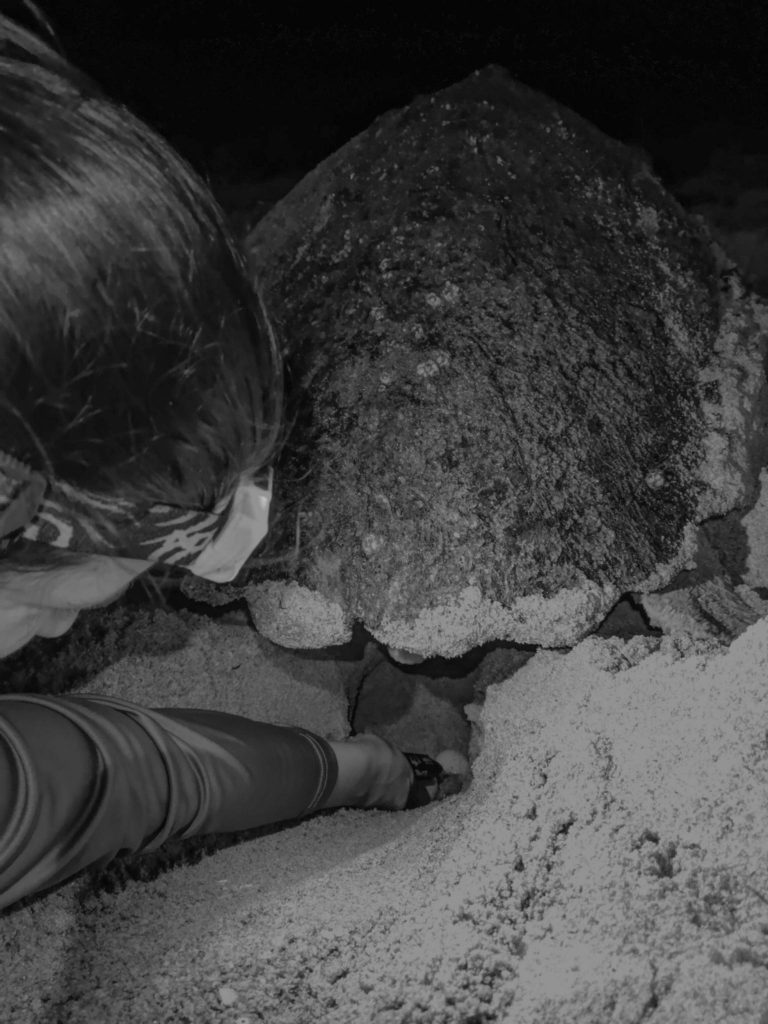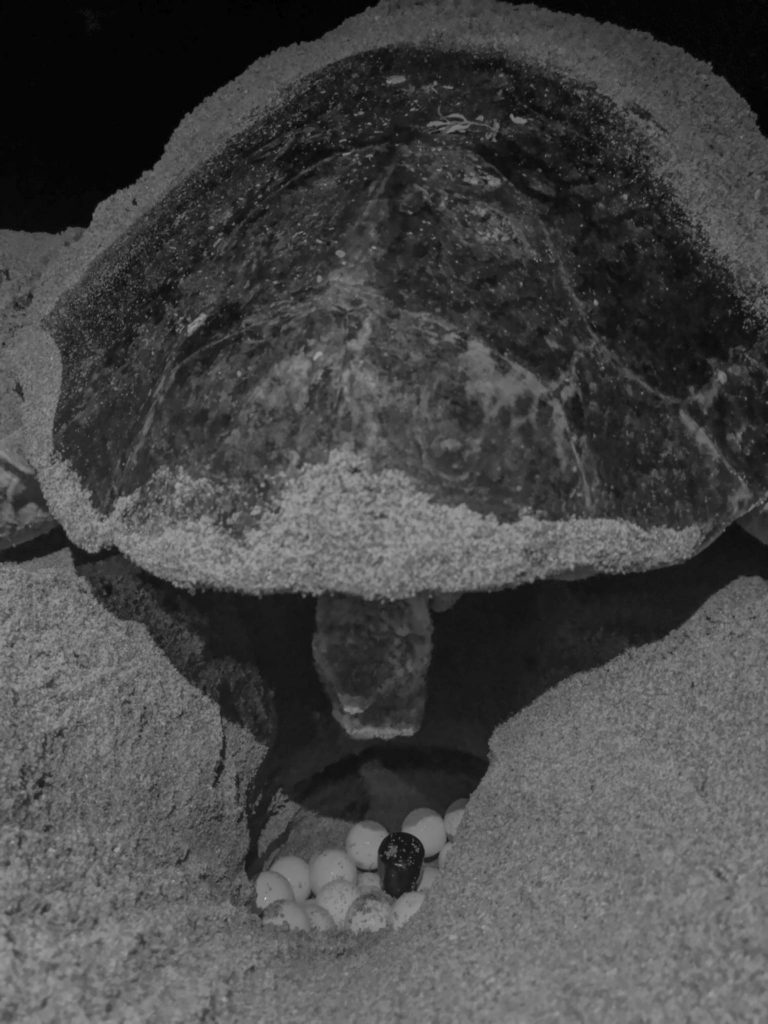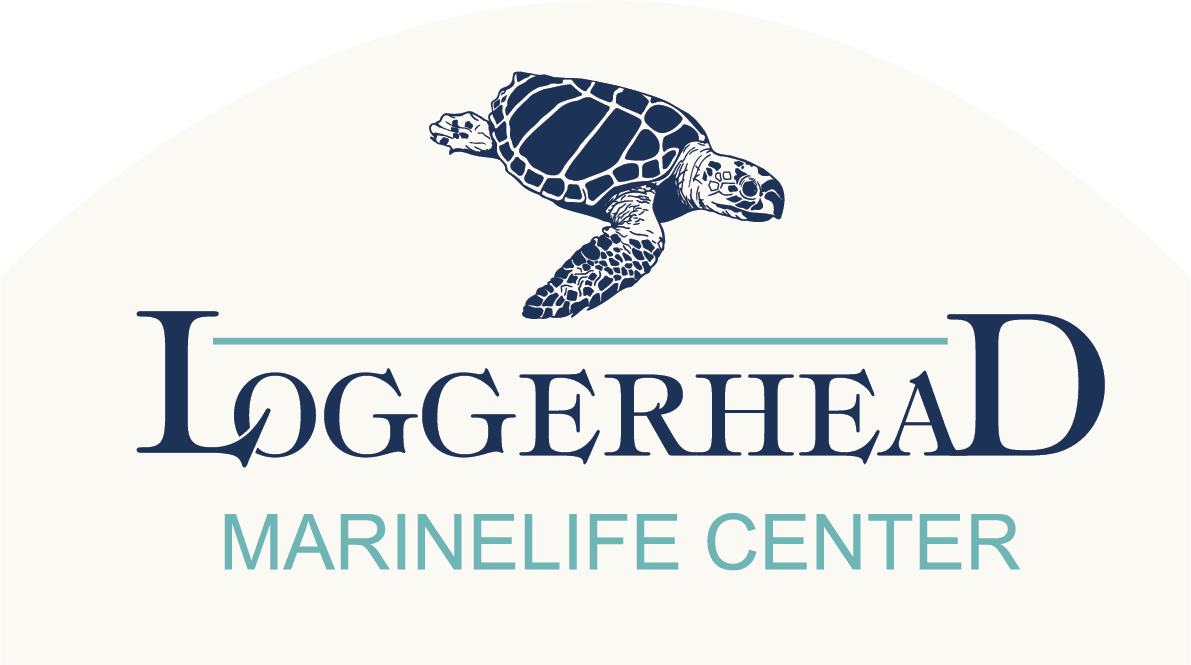
Loggerhead Marinelife Center researches sea turtle nest success with help of Florida Sea Turtle Grants Program
Beginning with its founder Eleanor Fletcher’s early research, Loggerhead Marinelife Center (LMC) has a long history of innovative and exploratory sea turtle research. Over the course of the Center’s 36 years, LMC’s research department has acquired extensive databases of information on sea turtles, including potential and current threats, appropriate nesting incubation temperatures, and habitat loss. Now, Senior Manager of Research and Data, Sarah Hirsch has continued to propel sea turtle research and conservation with her acquisition of a grant, on behalf of LMC, from the Florida Sea Turtle Grants program.
Investigating the Impacts of Geocores
Located adjacent to one of the most densely nested loggerhead sea turtle beaches in the world, it’s vital for LMC’s research team to continue to explore factors affecting sea turtle nesting and hatching. Through the grant, LMC’s research team has been able to investigate the impacts of geocores on incubating sea turtle nests. Loggerhead Marinelife Center’s geocore project has been made possible through a grant awarded by the Sea Turtle Grants Program, which is funded from proceeds from the sale of the Florida Sea Turtle License Plate.

Geocores are reconstructed dunes that use sand-filled geotextile bags buried at the base of a dune to protect inland infrastructure from coastal erosion. Previously, little research has investigated how geocores alter sea turtle’s nesting and hatching habitat. For the Florida Sea Turtle Grants Program and Loggerhead Marinelife Center, the goal of the project is to evaluate the sand characteristics and nest temperatures for sea turtle nests laid at the geocore to assess whether the restored dune provides suitable habitat for incubating loggerhead and green turtle nests. Similar to other reptiles, sea turtles require specific incubation temperatures to successfully hatch.
Furthering Sea Turtle Nest Success
“We are grateful to the Sea Turtle License Plate Grant for funding this important research on sea turtles. Understanding how erosion control measures, like geocores, impact sea turtle nesting and hatching is imperative in our ability to balance the human needs to protect infrastructure from storm surge, while maintaining suitable habitat for sea turtles. Investigating how sand characteristics and temperature play a role in sea turtle hatching and emergence success is one step in solving that puzzle. This project has implications past geocores; we hope that answering these questions can help inform management and policy decisions on all beach sand placement projects,” commented Hirsch.

Over the course of the 2019 sea turtle nesting season, which runs from March 1 through October 31, LMC’s research staff and interns marked off and monitored around 200 nests in association with the geocore project. Currently, our research team is compiling the data and working to publish the results.
Hirsch hopes “our results will have broad implications and can assist coastal managers in implementing measures that minimize the effects geocores and other similar projects have on sea turtle habitat.” Through this project, LMC hopes to improve the livelihood of sea turtles and aid in conserving Florida habitats.
Sea Turtle Grants Program
Loggerhead Marinelife Center’s geocore project, funded from proceeds from the sale of the Florida Sea Turtle License Plate, works to further research on sea turtle nest success in South Florida. The Sea Turtle Specialty License Plate is the primary source of funding for Florida’s Marine Turtle Protection Program. It also supports the Sea Turtle Grants Program, which has awarded more than $2.7 million in grants for research, education and conservation programs since 2001 to benefit sea turtles in Florida. By purchasing a Sea Turtle Specialty License Plate for your vehicle for only $23 a year, you are providing critical financial support for the Sea Turtle Grants Program and the state’s Marine Turtle Protection Program every time you drive.
———————–
One Mission. At Loggerhead Marinelife Center (LMC) we strive to be industry leaders in sea turtle and ocean conservation. Our work is focused on four core pillars, each focused on demonstrating measurable impact. Our team researches and conserves sea turtles, because sea turtles tell us the health of the ocean, which in turn tells us the health of our planet. These critical indicator species serve as our global ambassadors for ocean conservation. In this blog, we invite you to dive into the depths of ocean conservation and explore our research efforts.
Our PhD lead research biologists monitor one of the most densely nested loggerhead sea turtle beaches in the world. Through our comprehensive datasets and innovative studies, we are able to determine threats affecting the health of our sea turtles, oceans and ultimately us. Our research and datasets are invaluable not only to scientists, but also to local, national and international coastal managers. Donate to propel our mission and save sea turtles at: marinelife.org/onemission.
———————–
Media Contact:
Lauren Eissey, Public Relations and Engagement Specialist
561-627-8280, x124
